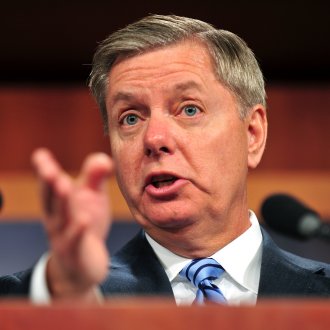National Conference Of State Legislatures Formally Opposes Federal I-Gaming Ban

 The National Conference of State Legislatures (NCSL) has formally adopted a resolution opposing the Sheldon Adelson-backed legislation known as the Restoration of America’s Wire Act.
The National Conference of State Legislatures (NCSL) has formally adopted a resolution opposing the Sheldon Adelson-backed legislation known as the Restoration of America’s Wire Act.
The decision was taken at a recent NCSL business meeting, after two thirds of representatives in attendance voted in support of the stance. “NCSL strongly opposes any effort by the federal government to overturn the Justice Department’s ruling or consideration of legislation overruling state authority by legalizing or regulating gambling at the federal level,” the organization said in a statement.
—
PocketFives’ news coverage is brought to you by Betsafe, one of the leading suppliers of online gaming products worldwide and a major sponsor of Gumball 3000. Sign up now for great bonuses, €3,000,000 guaranteed monthly, and plenty of live events!
—
 Introduced by Sen. Lindsey Graham (R-SC, pictured) and Representative Jason Chavez (R-UT) in March, the dual bills known as the Restoration of America’s Wire Act (RAWA) seek to ban Internet gambling on the federal level by rolling back the legislation to make the industry explicitly legal.
Introduced by Sen. Lindsey Graham (R-SC, pictured) and Representative Jason Chavez (R-UT) in March, the dual bills known as the Restoration of America’s Wire Act (RAWA) seek to ban Internet gambling on the federal level by rolling back the legislation to make the industry explicitly legal.
The Wire Act was enacted in 1961 as a way to combat organized crime. Later it was applied to online poker, and was used as a tool to help shut down the industry in the US. Soon afterwards though, the Department of Justice ruled that the act only applied to sports betting, a clarification which opened the door to legalized online gambling in the country.
If the RAWA initiative were passed, states which already offer Internet gambling, like Nevada, Delaware and New Jersey, would be forced to make operators close up shop.
 The legislation was heavily influenced by casino billionaire Sheldon Adelson (pictured), with an early draft of the bill said to be written by Adelson lobbyist Darryl Nirenberg himself. Adelson is well-known for his lavish political contributions, including $15,600 to Graham’s senatorial campaign in 2013. Curiously, before he introduced his anti-online gambling legislation, the South Carolina senator had never had a history of opposition to the issue.
The legislation was heavily influenced by casino billionaire Sheldon Adelson (pictured), with an early draft of the bill said to be written by Adelson lobbyist Darryl Nirenberg himself. Adelson is well-known for his lavish political contributions, including $15,600 to Graham’s senatorial campaign in 2013. Curiously, before he introduced his anti-online gambling legislation, the South Carolina senator had never had a history of opposition to the issue.
Adelson himself has vowed to spend “whatever it takes” to ban i-gaming in the US, hiring powerful lobbyists and creating the Coalition to Stop Internet Gambling to further that goal. The organization regularly releases ads claiming that online gambling will turn the nation’s vulnerable into addicts, or that terrorists groups like Al Qaeda could use the platform to facilitate attacks.
Andy Abboud, the casino magnate’s top advisor, is a fixture at state legislative hearings, where he performs a well practiced shtick of pulling out his cell phone and shaking it at legislators. “It’s a vice,” he tells them. “It doesn’t need to be everywhere.”
Several organizations have spoken out in opposition to RAWA, including the North American Association of State and Provincial Lotteries, the Fraternal Order of Policeand the Democratic Governors Association.
In April, the NSCL sent a letter to every senator and congressman voicing its strong opposition to the legislation. “States have proven that they are effective regulators of the gambling industry and the proponents of this legislation fail to make a case that we have been negligent in our responsibilities,” it said.
The message also highlighted the fact that Utah and Maine had opted out of Internet gambling, as was their right. “This is the way it should work, each state making the decision that is best suited to the desires of its residents and not through a congressional mandate,” the letter added.
As the Poker Players Alliance highlights, though, the NSCL’s recent announcement also goes against any legislation that regulates online poker at the federal level. It did not, however, take a stance opposing federal legislation which would enable interstate compacts.
The organization’s announcement is a clear boost for supporters of online gambling in the US. The NSCL’s message is clear: “The federal government must respect the sovereignty of states to allow or to prohibit Internet gambling by its residents.”




